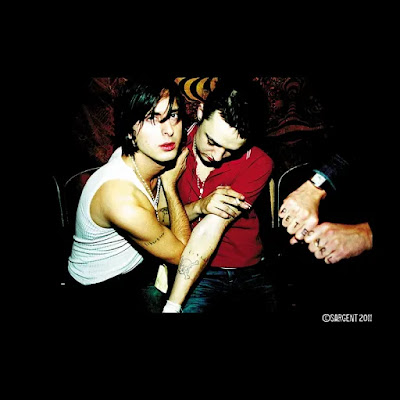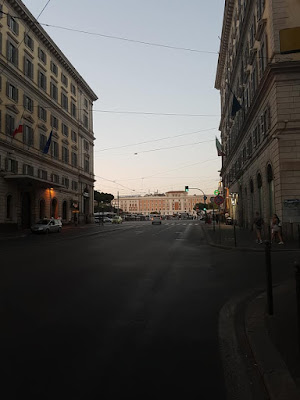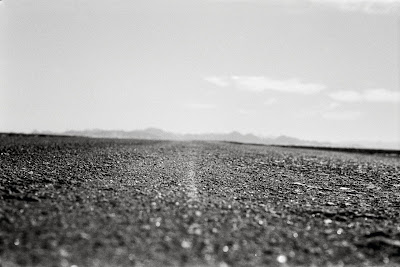In three weeks time, 14th December to be exact, London Calling will hit forty. My copy (pictured above) was purchased second hand at some point in the late 80s, already a decade old then. Since then I've ended up with three copies on CD- a plain re-issue, the 25th anniversary re-issue with the Vanilla Tapes and the remastered one from the Sound System box set. Sometimes I think I should replace my vinyl copy which has seen better days but baulked at the price of green and pink re-release. And in many ways I'm happy with my original copy- it's lived in and we've all got a little worn over the last forty years.
There's an exhibition on at the Museum of London celebrating the album with Paul Simonon's smashed up Fender Precision bass as one of the exhibits. We can sit here and blather about punk hitting middle age and ending up behind glass in cases in museums, surely not what punk was about, and moan about them selling out- and people were accusing The Clash of selling out from the moment they signed to CBS right through to now- but instead I'm going to focus on the record, the nineteen songs spread over four sides of vinyl that make up what may very well be the Greatest Rock 'n' Roll Record Of All Time. I don't especially care for Best or Greatest Of All Time, it's all subjective and one man's trash is another man's treasure, but if I were forced to have cull the majority of my record collection, to pare things back to the absolute minimum, London Calling would be one of the survivors. I can't imagine my listening habits without it.
Some context- in 1979 The Clash were in a bit of a hole. They'd moved on from the purist, Year Zero-ism of 1977 and had faced some criticism for the Sandy Pearlman produced Give 'Em Enough Rope. In 1979 they'd put out album track English Civil War as a single complete with the magnificent cover version of Pressure Drop on the B-side. In May they released the four track Cost of Living e.p. a record so red hot it almost couldn't be contained by the 7" of vinyl it lived within- a searing cover of I Fought The Law (more grist for their detractors, rebel chic plus someone else's song), two new originals in the shape of Groovy Times and Gates Of The West (yet more grist for their detractors, the band who in '77 were so bored of the USA but were now singing about it) and a new recording of Capital Radio (Capital Radio Two) to beat the scalpers charging over the odds for the original.
The group had changed management, ditching Bernie Rhodes, which led to them leaving their Camden rehearsal base and both Strummer and Jones admitted after that they'd suffered from writer's block. For what would become the London Calling sessions Clash tour manager and roadie Johnny Green and Baker had secured them a new space, the back of garage in Pimlico, re-christened Vanilla Studios. They locked the doors, kept people out and began playing around with covers that each of the four members brought in from their background and wide range of influences- rockabilly, rock 'n' roll, reggae, ska, rhythm and blues. In the afternoon band and crew broke off for football over the road, a couple of pints and then back to the rehearsals. From this they assembled the songs that would become London Calling, three cover versions (four of you include the cover of Armagiddeon Times on the B-side to the lead single), one song written right at the end after the sleeve had already gone to print, a first song and lead vocal for Paul and fifteen Strummer- Jones originals. They recruited semi- retired, semi- legendary producer Guy Stevens to produce the album, tracked down by Joe in a pub. Stevens caused chaos in the studio, deliberately, to get the group into the right frame of mind, a rock 'n' roll atmosphere (which all four said they thrived on). They spent six weeks in Wessex Studios, Bill Price stepping in when Stevens went too far, and came out of it with a double album that they insisted would retail for under a fiver. Value for money was a key punk concern. London Calling may not be punk but it is made of the punk aesthetic- do it yourself, loud and fast, keep mistakes in if they add to the song, don't do what they tell you to- spliced into roots music and rock 'n' roll. It is personal and political, local and global, London and the faraway towns.
Side One
Opening with the strongest statement of intent they could, the title track and single crashing in on Jonesey's two chord intro and Simonon's rumbling bass, a clarion call. Joe strikes out straight away, looking out from the capital to the rest of the country- 'London calling to the faraway towns/ now war is declared and battle come down'- with a state of the nation address taking in the death of the 60s ten years earlier and punk a couple of years before, police brutality, impending nuclear and climate apocalypse, starvation, the zombies of death (a line widely thought to be a reference to heroin carving its way through the punk scene) and Joe sitting in his flat on Chelsea's World's End estate, where he lives by the river. Joe took an early version of the lyrics to Mick, who told him to re-work them as the chorus wasn't strong enough. Imagine that. The song ends with a burst of radio pips and Joe's plea 'London calling at the top of the dial/ and after all this won't you give me a smile?'
Then it's immediately into their cover of Vince Taylor's Brand New Cadillac. One of the attentions to detail on this record is the gaps between the songs and the instances of split second timing. No sooner has London called than Simmo's bass takes us into the rockabilly flash of 'My baby drove up in a brand new Cadillac'. This was the first song recorded at Wessex, the cover version warm up sessions paying off. Topper said they'd have to redo it to, it speeds up in the second half, to which Joe Stevens replied 'all great rock 'n' roll speeds up'. From there on in they were flying. 'Balls to you baby', Joe sneers updating Taylor's 50s single to the late 70s, 'she ain't ever coming back'.
Jimmy Jazz is a change of pace, initially a laid back sounding jazz- blues song, Mick's guitar playing decidedly non- punk, all echo and space. Joe comes in over the swinging backbeat with a tale of the police looking for Jimmy, threats to cut off his ears and head, Jimmy Dread and Satta Massagana, Joe eventually going all scat. Jimmy Jazz is the big sign on first listen, half way through side one, that things have changed, that other influences are all over this record. Jimmy Jazz, after the strum and drang of the title track and the amped up rockabilly of Brand New Cadillac, is a breather of kinds.
Jimmy Jazz
And then blam! Hateful, a three minute, three chord trick, a rocking Bo Diddley shuffle with lyrics about heroin addiction (again) and in the 'this year I lost some friends' a reference to Sid Vicious and his sad death in New York. Even their throwaway side one track four album songs are better than most band's singles.
Side One closes with Rudie Can't Fail, very much a London song, Mick responding to Joe's instruction of 'sing Michael sing' with a shouted 'on the route of the 19 bus...' We're deep into ska and reggae territory, horns driving the song emphatically, again with that Bo Diddley shuffle and beat. A celebration of the West London rude boys and drinking brew for breakfast, the youth being criticised for not settling down, getting a job from the paper and taking responsibility. In response Rudie loves his life, 'I tell you I can't live in service' he says, 'looking cool and speckless' in his pork pie hat and chicken skin suit. The band's rhythm and ska builds up, the guitars choppy and the horns parping. It's clear whose side The Clash are on.
Side One takes in so much in it's five songs, from apocalyptic modern rock to cool jazz, from rockabilly to funky reggae, it's tempting to just flip the needle back to the start and go through it all again. The band are flying, Joe's on fire lyrically and the songs up the ante from one to the next covering more musical ground than any other punk band would be able to. And that's before you've even flipped the disc over and played side two, possibly the greatest run of Clash songs they committed to one side of black vinyl. And I'll come back to that soon.



































